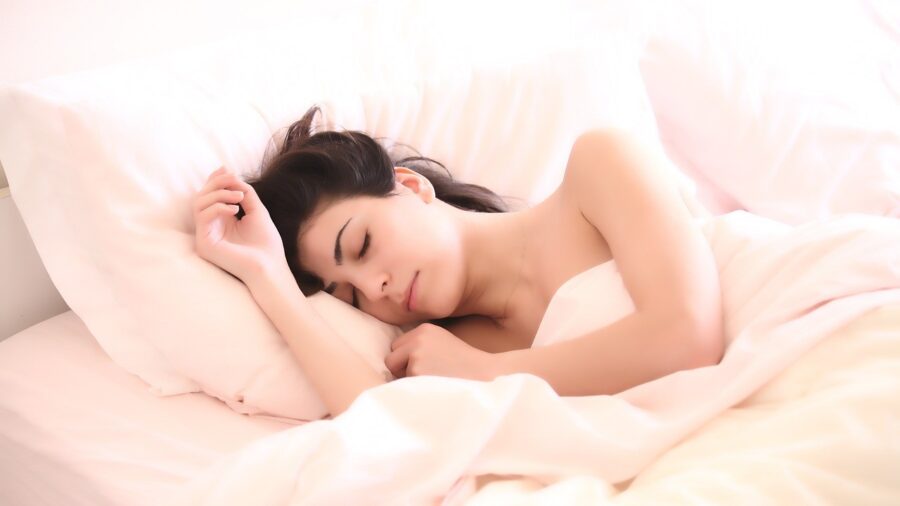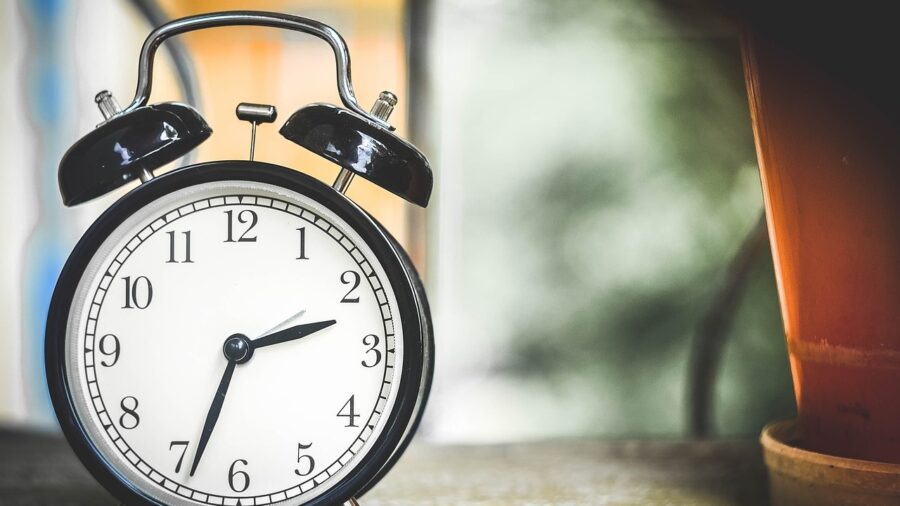Scientists Make The Best Sleep Discovery Of All Time

With the colder weather arriving, the days getting shorter, and the dark holding more hours, sleep schedules are about to be thrown out of whack. While studies have previously come out that preach against those looking for a few extra minutes of sleep reaching for their snooze button, a study in the Journal of Sleep Research (via NBC News) reports that doing so doesn’t actually affect your sleep at all. If you reach for the alarm multiple times over a 30-minute period, you may be helping yourself become more alert for the day to come.
A new study suggests that whether or not you hit the snooze button doesn’t impact your sleep or energy level in a major way.
In the past, researchers believed that hitting the snooze button would further drain sleepers of energy, as opposed to jumping out of bed at the first alarm and getting started with their days. However, this new study suggests that snoozing for 30 minutes “does not make you more tired or more likely to wake up from deep sleep,” debunking the previous thought that getting some extra zs could damage your REM cycle.
In fact, for the people out there who just can’t seem to get out of bed on the first buzz, Tina Sundelin, an associate professor in the department of psychology at Stockholm University in Sweden and the study’s lead author, said that going back to bed for a bit could ultimately “be helpful with waking.”
Of course, there’s also a downside for some of those looking for a little extra sleep.
The study took into account the experiences of 1,732 adults who filled out a questionnaire about how they got their days started. Around 69 percent admitted to slapping that snooze button at least a few times a week (particularly on workdays) with 60 percent reporting that they almost always passed back out in between their alarms.
Of course, there’s also a downside for some of those looking for a little extra sleep. On average, the study showed that snoozers were three times more likely to wake up drowsy after multiple snoozes despite their hopes that doing so would help them become more alert with that extra amount of sleep.
While their sleep was unaffected, the study did find that – on average – the snoozers got six fewer minutes of sleep.

For others, snoozing is simply a comfort thing, something that allows them to relish the their mattress, pillows, and blankets before hopping out into the cold and harsh world.
But a questionnaire wasn’t the only way sleep patterns were taken into account during the study. The scientists also brought 31 people into their sleep lab over several nights to conduct tests.
Over the course of the trial, the participants tried a myriad of sleeping tests including the up and at ‘em style and the snooze on and off for 30 minutes. While their sleep was unaffected, the study did find that – on average – the snoozers got six fewer minutes of sleep.
Essentially, it’s a snooze or don’t snooze situation. While hitting the button to put off starting your day may or may not get you a few more minutes of sleep, it’s good to know that, in the long run, it won’t damage how you function throughout the day.












